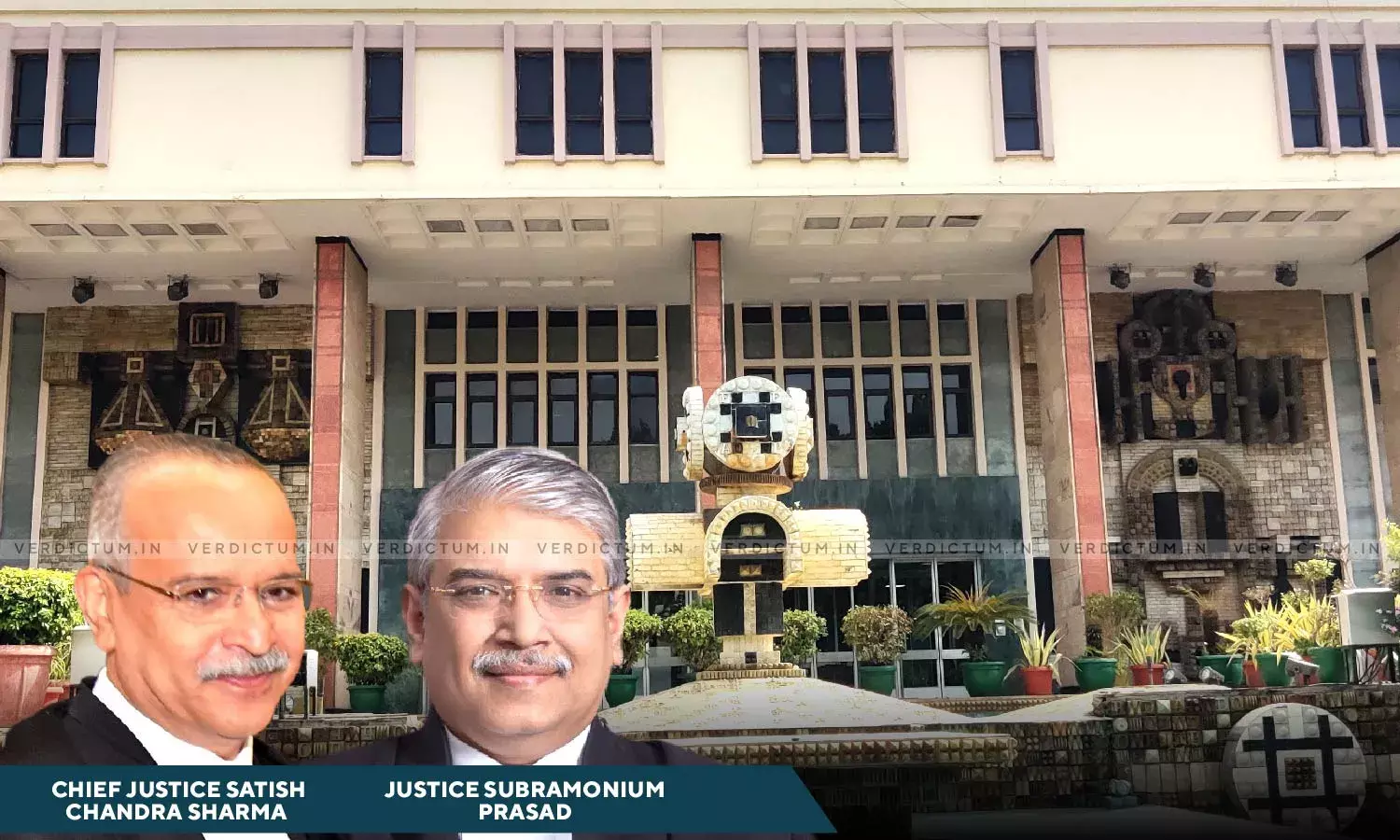Delhi HC Issues Notice On Law Student's Plea Seeking Direction To Conduct CLAT-2024 In Regional Languages Also

The Delhi High Court today issued notice on a PIL filed by a Law Student from Delhi University seeking directions to Consortium of National Law Universities to conduct CLAT-2024 (Common Law Admission Test) not only in English language but in all other regional languages given in the Eight Schedule of the Constitution.
The Bench of Chief Justice Satish Chandra Sharma and Justice Subramonium Prasad issued notice on the PIL filed by Sudhanshu Pathak contending that CLAT (Common Law Admission Test) discriminates against and fails to provide a level playing field to the students belonging to educational backgrounds rooted in regional languages.
Senior Advocate Jayant Mehta along with Advocates Akash Vajpai and Sakshi Raghav appeared for the petitioner-student.
“Naturally, aspirants belonging to English-medium schools have an advantage over their peers belonging to schools operating in Hindi or other vernacular languages. The underprivileged and disempowered aspirants can never view an exam solely based in English as ‘obvious’ unlike their privileged, English-speaking competitors”, the plea reads.
The petitioner has pointed out that as per a recent survey conducted by IDIA Trust (Increasing Diversity by Increasing Access to legal education), an astonishingly large number of students (over 95% of all surveyed students) came from schools where the medium of instruction was English both at the secondary and higher secondary level.
The petitioner states that CLAT provides an inherent advantage to students from an English medium background.
He also stated that this figure has been more or less consistent with the results of the 2013-14 survey wherein 96.77% of the surveyed students came from English medium backgrounds, indicating that proficiency in the English language continues to be a major factor for gaining admission to a top NLU in the country.
“This discrimination between regional language students and English medium students is very clear from the IDIA’s diversity report and this discrimination also is in the teeth of article 29(2) of the Constitution…”, the plea reads.
It has been further stated that “New Education Policy, 2020 and Right of Children to Free and Compulsory Education Act, 2009 require mother tongue to be the medium of instruction in schools and higher education institutions, it is unfortunate that English as an only medium of CLAT-(UG) is depriving a huge portion of the students of opting for the law ( 5 years LLB) as a course of study, who have studied in their regional or native languages.”
The petitioner has stated that if CLAT (UG) is conducted in the regional-languages, it will lead to a more diverse and representative college community.
"A linguistically diverse CLAT runs in line with the spirit of article 29(2) of the Constitution of India. It provides a level playing field to the aspirants of regional Ianguages and breaks the erroneous link made between merit and English.", the petitioner has averred.
As per the petitioner, CLAT discriminates against and fails to provide a level playing field to students belonging to educational backgrounds rooted in regional languages. In a hyper-competitive paper, they are linguistically disempowered as they have to surpass the additional hurdle of learning and mastering a new language. Naturally, aspirants belonging to English-medium schools have an advantage over their peers belonging to schools operating in Hindi or other vernacular languages, contends the petitioner.
It has been pointed out that earlier, a matter titled Disha Panchal v. Union of India was filed in the year 2018 before the Supreme Court narrating the technical glitches and difficulties faced by students in CLAT wherein directions were issued vide order dated June 13, 2018 to the Union of India to look into the technical difficulties faced by the students while giving CLAT examination every year and also to form a committee and take inputs from different stakeholders including the Bar Council of India. The committee was also directed to file a detailed report within three months in order to provide an expeditious remedy to students.
The petitioner says that pursuant to an order in an earlier case before the Delhi High Court, the seven-member committee constituted as per the order of the Apex Court was to take stock of the matter and do the needful. But till date, the grievance of the students is not redressed, as per the petitioner.
Cause Title- Sudhanshu Pathak v. Consortium of NLUs & Ors.

